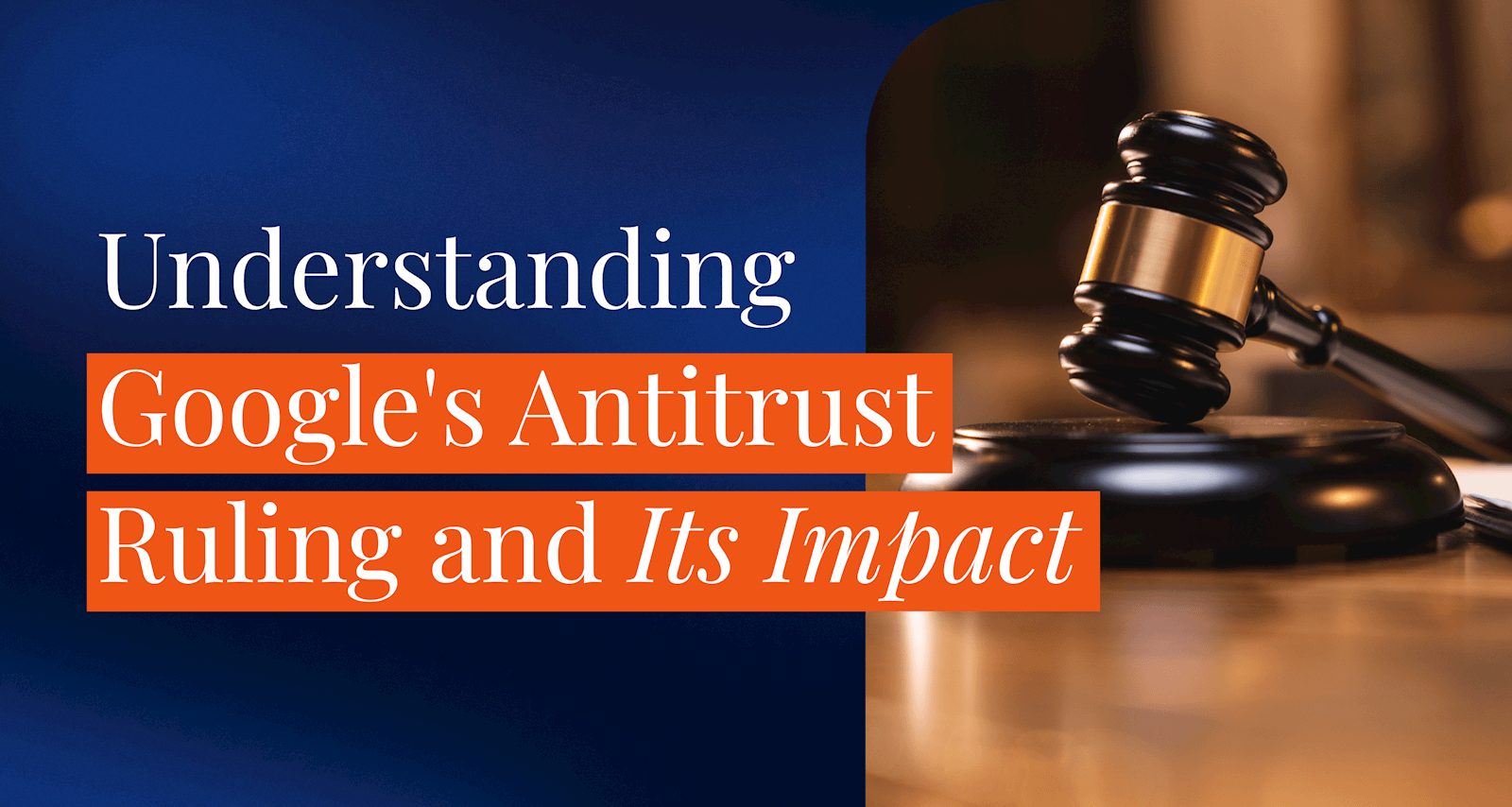Search Engine Shake-Up: What Google’s Monopoly Ruling Means for the Future of Search Marketing
Published by Spinutech on August 14, 2024

Google is a monopoly.
At least according to a decision issued by the U.S. District Court for the District of Columbia, which found that Google has violated U.S. antitrust law after a years-long legal battle between the tech giant and the U.S. Justice Department.
This is a stunning defeat for Google, which argued in court that its market dominance stemmed from consumers recognizing the superior quality of their search engine in comparison to their competitors. The Justice Department countered that Google has used its powerful position to thwart competition and stifle innovation to maintain its stranglehold.
Google has made clear it intends to appeal the decision, but in the meantime, digital marketers are left to ponder the far-reaching implications of this landmark decision.
For Now, Google Remains Atop Its Throne
Don’t expect to see any seismic shifts in the search landscape in the immediate future.
Google's search algorithms and ad platforms remain superior to competitors in terms of reach, targeting capabilities, and ROI. So the majority of search ad spend is expected to continue flowing through Google's ecosystem in the near term.
But Challengers to the Crown Are on The Horizon
Even if they are secure atop their throne for now, Google shouldn’t get comfortable.
If they are forced to disengage from exclusive deals that have made Google the default search engine on a number of web browsers and devices, it may open the door for increased adoption of alternative search engines. Microsoft's Bing, for example, has recently reported an uptick in usage, possibly signaling a gradual shift in user behavior.
OpenAI’s SearchGPT could also introduce a new player to the advertising space. It’s unclear at this point whether SearchGPT would offer any advertising capabilities, but it would represent a clear threat to Google’s advertising if it were to steal market share.
The combination of this ruling and emerging AI-powered search technologies could create a perfect storm for disruption in the search market.
Keep an Eye on Your CPCs
If Google's market share does erode over time, we may see changes in ad pricing dynamics. Increased competition among platforms could lead to more favorable cost-per-plicks (CPCs) for advertisers. However, this could be offset by potential fragmentation of the market, requiring more complex multi-platform strategies to achieve the same reach.
Our Advice: Proceed with Caution
While the ruling against Google is going to reverberate across the digital marketing industry, it’s important to react with a measured approach. Google's search offerings remain superior in many respects, and any transition away from its dominance is likely to be gradual.
Our strategy should be one of cautious optimism and preparedness:
- Continue to leverage Google's powerful ad platforms while they remain the most effective option.
- Allocate resources to test and optimize campaigns on alternative platforms like Microsoft Advertising.
- Stay informed about emerging technologies like SearchGPT.
- Prepare for the potential of a more fragmented search market in your long-term strategic planning.
By staying agile and forward-thinking, brands can navigate this evolving landscape and capitalize on new opportunities as they arise.
If you’d like to stay ahead of the curve, we can help with that.